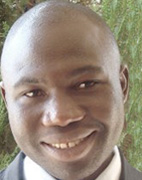Matthew Adeiza

Text Me Maybe: Digital Media, Elections and Stomach Infrastructure in Nigeria
Despite the general optimism about the potentials of digital media to empower ordinary citizens to influence political processes, and interact with political candidates during election campaigns, some recent scholarship is skeptical about what has become known as “controlled interactivity” by political candidates. This study of a governorship election in Ekiti state, Nigeria, examines through content analysis of news reports and interviews with campaign officials of a winning party, the People’ Democratic Party, about how messages were designed and delivered, and how decision makers saw digital media in their overall plans. The study found that the campaign team used digital tools minimally, using SMS text messaging as their preferred way of reaching people in addition to a light use of Twitter. In terms of content, the messages were populist, and were used for coordinating rallies, attacking the opposition, and debunking opposition attacks. The campaign also delegated rumor-spreading tasks to proxies who were not officially affiliated with it, thereby saving itself the challenge of proving accusations against the opponent. The campaign effectively framed the incumbent as elitist while ironically defending its own candidate via text messages augmented with radio advertisements. The paper discusses the implications of the findings, and how it might influence the future of democracy in the country.
Biography
Matthew Adeiza is a PhD student in the Department of Communication at the University of Washington in Seattle, United States, where he studies the adoption and use of digital media by political parties in Sub-Saharan Africa with specific focus on Nigeria, Ghana, and Kenya. The research explores how parties and candidates adopt technology to mobilize support and engage voters. He has a master’s in African Studies from the University of Oxford, UK and a bachelor’s in Mass Communication from the University of Jos, Nigeria. He has led the Nigeria segment of a global user research project hosted at Leuphana University in Germany, and is currently project manager for the Digital Activism Research Project at the University of Washington.